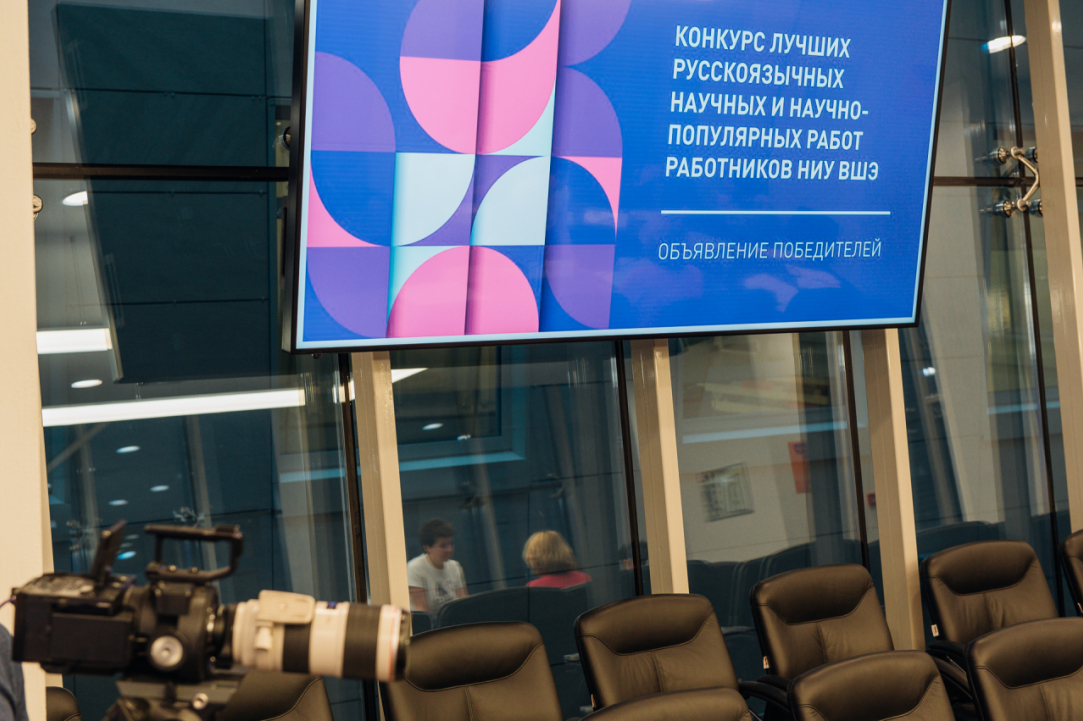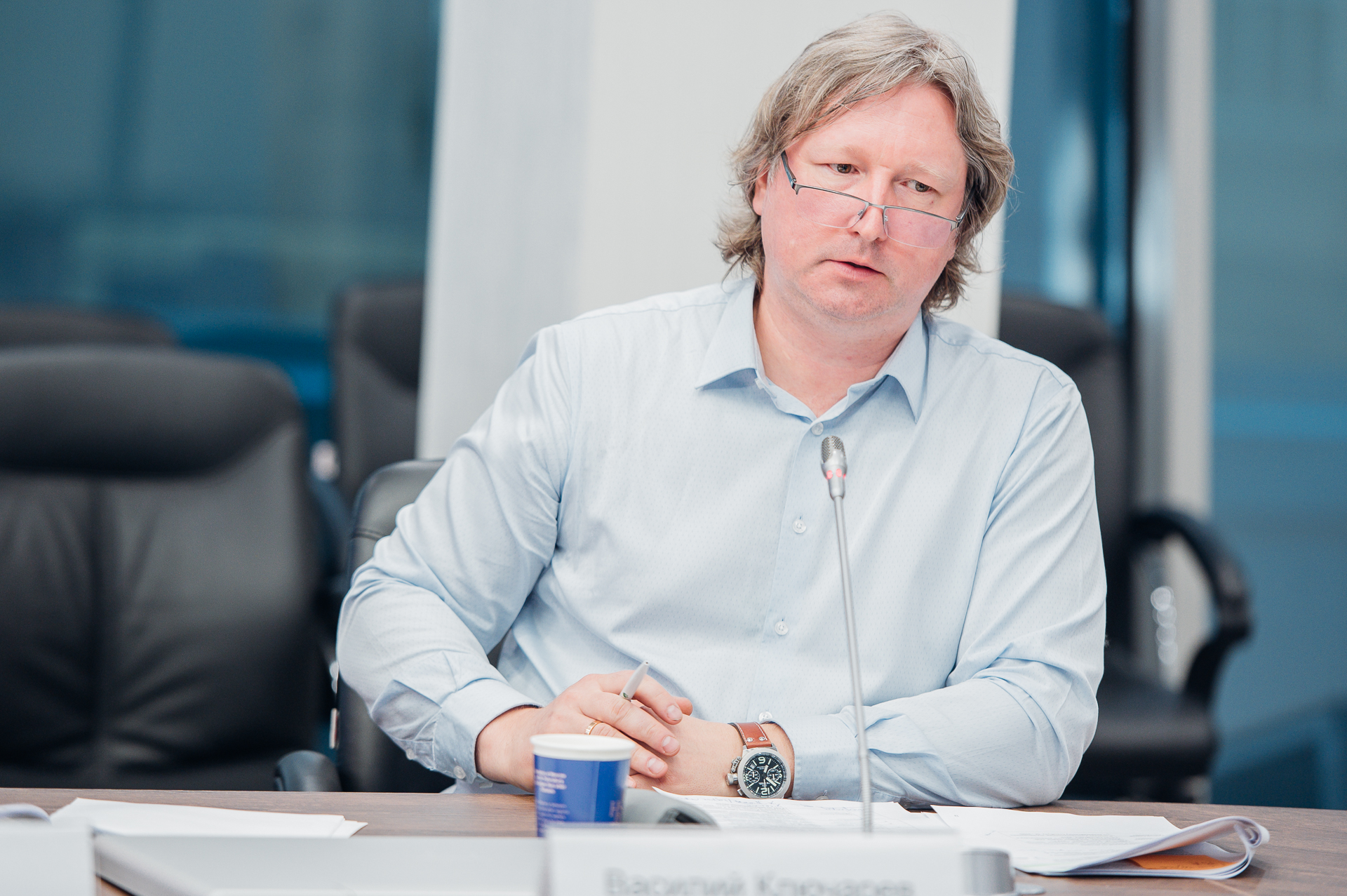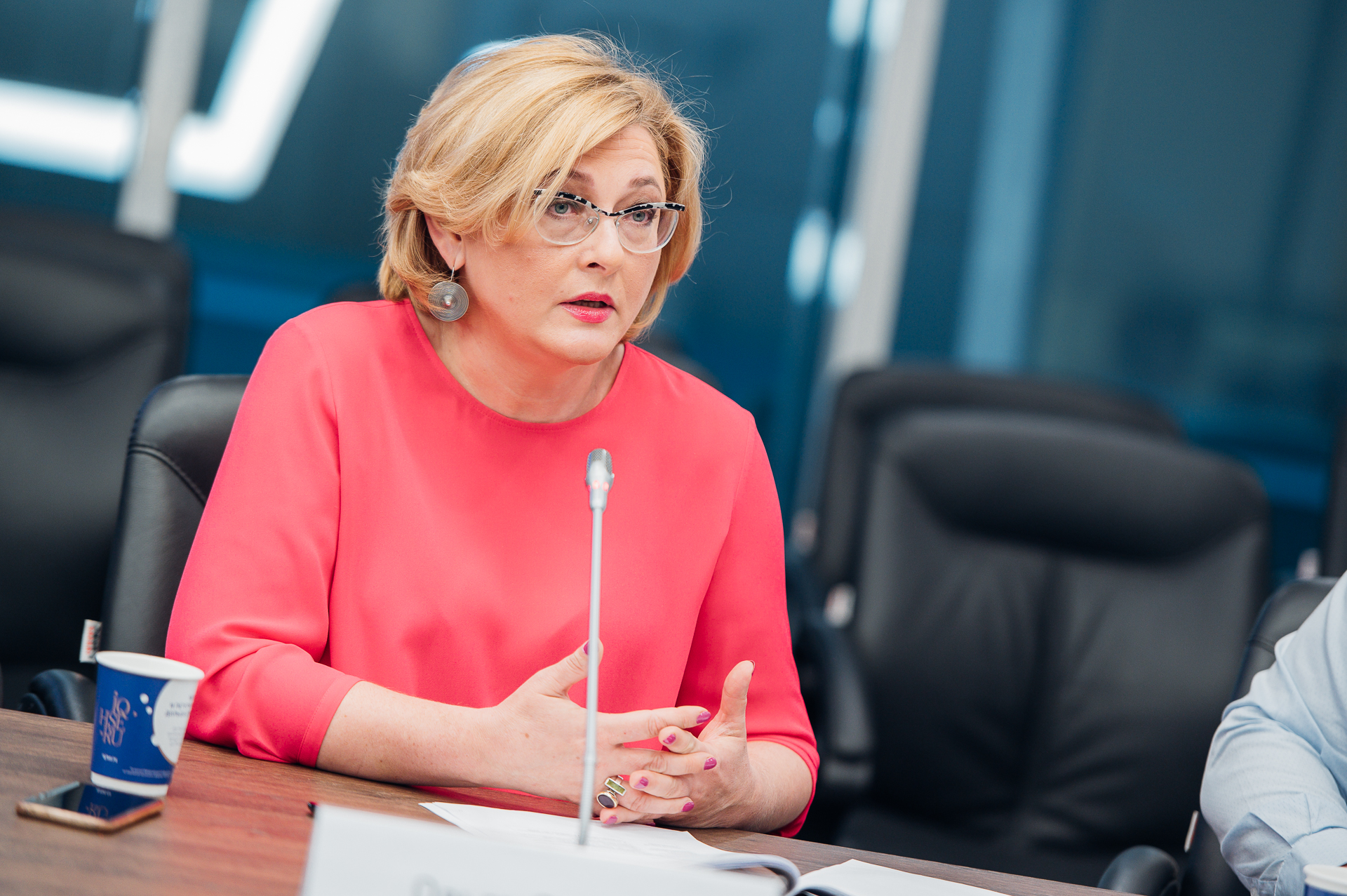‘To Read Such Papers, International Scholars Will Likely Want to Learn Russian’

The results of the competition for the best academic and popular science papers in Russian by HSE staff members have been announced. This competition is a new one, organized by the university to celebrate the Year of Science and Technology. 257 applications were submitted, with 35 winners announced in the academic category and 30 in the popular science one. The winners were announced on Alexander Pushkin’s birthday. The organizers plan to make the competition annual, potentially opening it up for all Russian and international researchers writing papers and involved in science communication in Russian.
HSE Rector Yaroslav Kuzminov opened the ceremony and said that the aim of the competition is to increase the level of academic thinking, argument and reasoning in Russian. Research is becoming global and people who communicate with each other in the Vulgar Latin of the modern times — professional English — often don’t use even a third of this remarkable language’s capabilities. Its native speakers have a considerable advantage: their papers are more persuasive, and their presentations are better, while the others lag behind accordingly.
‘Thinking, arguing and networking research results in your mother tongue means taking advantage of the whole emotional and cultural heritage that every native speaker has. Academics are generally people of a higher cultural level than non-academics: this is not a rule, since there are academics who completely ignore the external culture, but on average, they consume culture more actively and have a higher potential for expressing themselves’, the rector said.

However, this is certainly not about any xenophobic denial of English language, Yaroslav Kuzminov explained: ‘we are continuing our communication as part of the big global village. But those of us who don’t want to lose our emotion along with abstract summaries and results, who want to communicate to a wider audience rather than the usual readers of papers, we write papers in our native languages as well: French, Chinese, German, or any other, which will undoubtedly survive in the global epoch of Vulgar Latin’.
‘We are willing to motivate and support our colleagues who believe this academic aspect is important’, Yaroslav Kuzminov said, ‘And this is not about our mission in enlightenment, although we are expanding our audience this way, but rather about self-expression, which involves the use of our cultural background. We were thinking a lot about adding the popular science category: we doubted whether we would get strong applications, but the results far exceeded our expectations: there are almost as many winners in the popular category as in the academic one. From this competition, we learned a lot about ourselves, about the varied and thrilling projects we have here’.

According to the Rector, another important feature of the competition is the lack of formal barriers and formal assessment: the papers were accepted no matter where they had been published (although there is a list of journals at HSE University, in which being published brings bonuses, which is a new thing in Russia). For the university, the competition had a wider importance rather than simply supporting the Russian language.
Vice Rector Maria Yudkevich said that 257 papers and project had been submitted to the competition, including 93 papers in the popular science nomination. There were 136 papers in social science, 81 in humanities and 40 in natural science. The papers were nominated by the Academic Councils of faculties and campuses, which selected the best ones out of those suggested by the Academic Committee. In addition, in the popular science category, the papers could be presented by initiative groups of research fellows: such initiatives suggested a lot of good papers, including those that became the winning entries.
‘We believed such stage-by-stage expertise with the involvement of the professional community was very important, since it provided academic communities with the opportunity to highlight their most interesting papers and projects’, Maria Yudkevich emphasized. 35 papers were declared winners in the academic category, and 30 in popular science. The jury also specially mentioned 3 more papers, one of which is by a student from HSE University campus in Perm.
‘We are giving a start to a new tradition, and we are happy this is happening in the Year of Science and Technology. Despite the fact that this year will inevitably come to an end, we would like to make this competition an annual one: I hope that, maybe, from next year, it will be open not only for HSE family members, but for everyone interested’, HSE Vice Rector said.

The first experience is always a difficult one, and it is nice to see that it worked well’, said Vadim Radaev, First Vice Rector, who chaired the jury in the academic category, ‘The competition was very representative: our category attracted 160 papers, many of which were very good. The jury consisted of 17 colleagues from different disciplines and subject areas, and they had a hard time choosing the 35 winners. All jury members worked well and impartially, and I would like to thank my colleagues’.

Denis Volkov, Leading Research Fellow at the HSE Institute for Oriental and Classical Studies, who announced the winners in humanities, reminded the audience that the founding fathers of Russian Oriental studies wrote in Russian and integrated in their papers the most recent insights from publications made in Western European and sometimes, in Asian languages. There is a Russian academics’ correspondence that dates back to early 20th century, in which they say that a certain Western European scholar had started to learn Russian only in order to read Russian Oriental studies papers in the original. Denis Volkov believes that the papers submitted for the competition comply with international standards of academic excellence, make a contribution to global science, and in order to read such papers, international scholars will likely want to learn Russian.

The jury for the popular science category was chaired by Vasily Klucharev, Director of the HSE Institute for Cognitive Neuroscience. The jury included academic journalists, scholarly editors of online media, and representatives of various universities, from ITMO to HSE University.
‘We based our decision on four criteria’, Vasily Klucharev said, ‘First, the paper had to be written outside the academic and educational framework, which means it couldn’t be simply an online lecture. Second, the wider its audience, the better. Third, the product had to be a comprehensive result of hard work: there were many thrilling papers, and I loved the papers about results of practical studies, but, all else being equal, we gave priority to comprehensive works. Fourth, we paid attention to the paper’s accessibility; it had to be clear to a wide audience’.

Olga Orlova, jury member, renowned academic reporter at OTR, author and anchor of the show ‘Gamburgsky Schet’, said that she had had no doubt the competition would be a success: ‘Anyone who deals with science communication in Russia communicates with experts from HSE University. The administration of my channel keeps asking me why I invite so many speakers from HSE University, and I say that I’m not interested in their gender, age or affiliation. I’m interested in whether they are experts and whether they are able to speak clearly and interestingly for the general public. If so many of them work at HSE, this is not a question for me, but a reason for other universities to think about it’.
Olga Orlova said that many remarkable and interesting people who work at HSE University talk to key media at the same time, as well as creating their own media, including managing YouTube and Telegram channels. Science communicators among university staff are usually overloaded; they often not only teach and carry out research, but also perform administrative work and it is very important that at HSE University, their communication activities are supported by colleagues and administration. Often, the researchers spend their own personal time and money on this, while the administration of their respective universities doesn’t pay enough attention: we know of a case when a renowned researcher was given an award for science communication, and the rector of their university, who was on the award organizing committee, didn’t even shake hands with them’.
Competition results:
35 papers were winners in the academic category.
30 papers were winners in the popular science category.
The jury also specially mentioned 3 more papers, one of which is by a student from the HSE University campus in Perm.
More about the competition winners and nominations (in Russian):
‘If this competition becomes an emotional impulse for people, if it demonstrates that everything you do for science communication, you also do for society, it will be a very important initiative’, Olga Orlova emphasized, ‘HSE University initiates experiments in the university community, it starts the relay, and the other universities take up the baton. I am sure that if this competition goes on, we’ll see a snow-ball effect in a few years’.
Maria Yudkevich wrapped up the ceremony and reminded the audience that all winners were going to get honorary certificates, and each winning paper would be awarded 300,000 roubles. She also thanked the jury on behalf of the organizing committee: ‘I attended the discussions, and they were thrilling. It is not often that sessions of administrative committees are a real intellectual pleasure. It was very hard, but nonetheless, fascinating work, and I hope that next year, it will be even harder, since we’ll get even more applications’.
See also:
Arkhangelskoye Estate Museum Launches Open Call for Artists
The Arkhangelskoye Estate Museum is launching an open-call for the exhibition ‘Water in Art. Water in the Estate.’ The exhibition will feature paintings, graphics, sculptures, decorative and applied arts from the museum's collection, as well as works by young artists created specifically for the project.
International Competition of Short Videos about Cities Is Underway
The Moscow City Tourism Committee and HSE Art and Design School invite young directors, animators, cameramen, and other authors working with video to participate in the International Competition of Short Videos about Cities. The contest is organised on the platform of HSE Art and Design School and the Creative City Project of the Institute of Creative Industries in the framework of the ‘Territory of the Future’ Moscow forum and festival.
Season Eight of HSE CREATIVE OPEN Competition Begins
HSE CREATIVE OPEN international online competition of the HSE Art and Design School opens the summer season featuring new categories: ‘Visual Research,’ ‘Game Design,’ ‘Motion Design,’ ‘Poster,’ and ‘Digital Product.’
HSE University and Pobeda Airlines Launch Joint Competition
HSE Art and Design School, in collaboration with the Pobeda Airlines, has announced the start of a competition to create a new uniform design for flight attendants and representatives of the airline. Young professional designers, as well as students over 18 years old studying at Russian universities in full-time and part-time programmes in the field of ‘Design and Fashion,’ will have the opportunity to showcase their talent.
HSE University and Adyghe State University Launch Digital Ethnolook International Contest
The HSE Centre for Language and Brain and the Laboratory of Experimental Linguistics at Adyghe State University (ASU) have launched the first Digital Ethnolook International Contest in the Brain Art / ScienceArt / EtnoArt format. Submissions are accepted until May 25, 2024.
‘The Goal of the Contest Is to Select Bold Ideas Aimed at Fostering a More Equitable Global Development’
HSE Vice Rector, Head of the BRICS Expert Council–Russia and Co-chair of the BRICS Civil Forum Victoria Panova, and Dean of the HSE Faculty of Humanities and Chair of the Contest Jury Felix Azhimov, announced the primary objectives of the contest, its format and potential participants during a press conference at TASS. Nationals from the BRICS countries, aged 18 to 45, are eligible to apply for participation in the contest. The jury will select ten winners, three of whom will be given the opportunity to attend the BRICS Civil Forum in Moscow in person.
HSE University to Reward Students Who Write Their Thesis Using AI
HSE University has launched a competition for solutions using artificial intelligence technology in theses work. The goal of the competition is to evaluate how students use tools based on generative models in their 2024 graduation theses (GT).
Imprint: An Open Competition for Photographers
The ‘Photography’ educational track of the HSE Art and Design School is launching an online magazine called Imprint. The magazine will focus on collecting, summarising, and making sense of information about modern photography in Russia. The school will support talented photographers and offer them a platform for creating, developing, and uniting.
'Unconventional Thinking Can Be Cultivated through Competitions Like Physics Tournaments'
Last week, university students from all over the country came to HSE University for the All-Russian Student's Tournament of Physicists. The tournament took the form of battles in which teams tackled physics problems while taking turns in the roles of speakers, opponents, and reviewers. Based on the competition results, the combined team 'Volume Dependence' emerged as the winner and will participate in the upcoming international tournament in Zurich.
Second Season of ‘Parajanov—100’ Contest Launched at HSE Art and Design School
As part of a continuing exploration of the national cultural context, the HSE University Art and Design School and the Russian-Armenian (Slavonic) University, in collaboration with the Sergei Parajanov Museum and the Artists' Union of Armenia, have announced the second open international online contest for collage in animation dedicated to the centenary of Sergei Parajanov’s birth.


